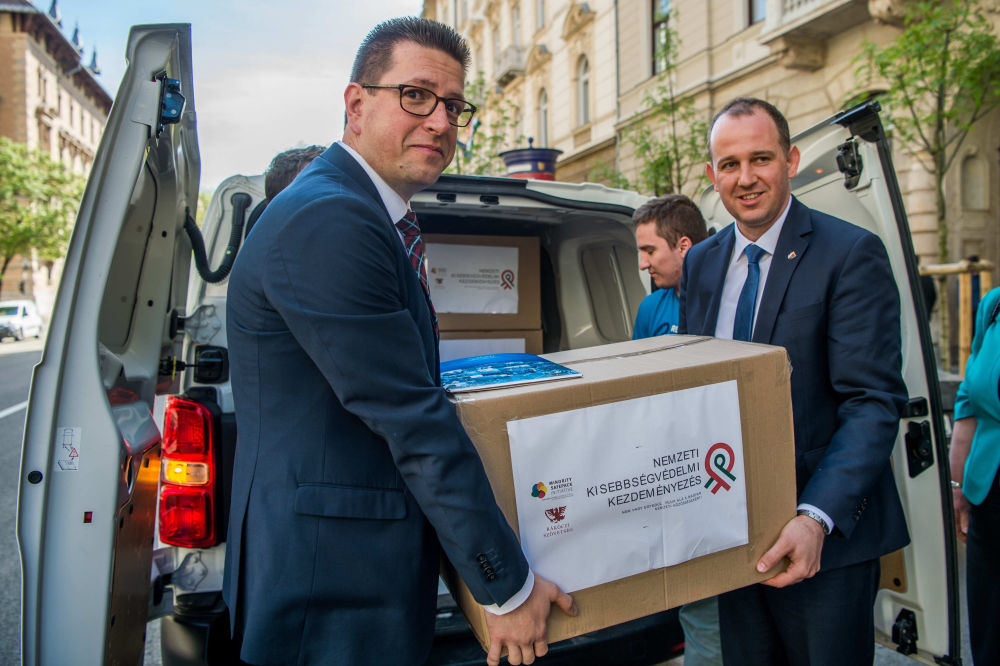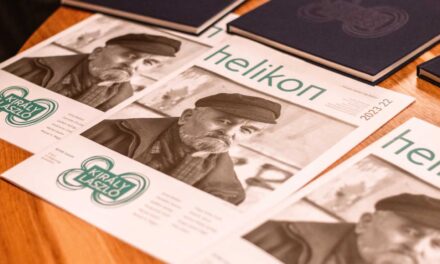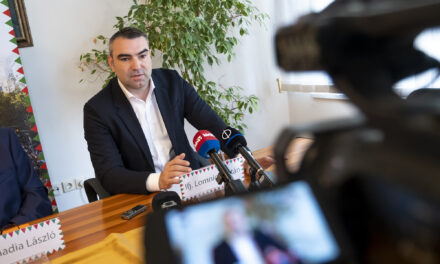The Luxembourg court of the European Union rejected the action of the initiators of the Minority SafePack - but the activists are not giving up. According to MEP Lóránt Vincze, the European Commission is living in a parallel reality if it thinks that all steps have been taken to protect national minorities within the EU.
The lawsuit was filed by the organizers after the European Commission announced that, despite the one million signatures collected in nine countries, it was not willing to deal with the case because, in their opinion, the EU had already done everything for the rights of national, ethnic and linguistic minorities.
The Minority SafePack aimed to call on the European Union to improve the protection of those belonging to national and linguistic minorities and to strengthen the cultural and linguistic diversity of the Union.
However, the initiators of the initiative will not give up - Lóránt Vincze, the RMDSZ president of the Federative Union of European Nationalities (FUEN), which initiated the initiative, now confirms.
"It was surprising, because previously the court had consistently upheld Minority SafePack's claims and had predicted on several occasions that the European Union could adopt measures aimed at fulfilling linguistic and cultural diversity," Vincze explains his shock to our newspaper.
"Compared to this, in the current decision it is described that the European Union has already done everything to protect indigenous minority communities, in all the areas listed in the Minority SafePack" - that is, the General Court of the European Union in its reasoning just gave rise to the opinion of the European Court of Justice.
The representative adds:
"As a Hungarian and someone who has visited several European minorities, I can say that the Commission lives in a parallel reality.
Because in our Europe there are indeed violations in language use, education and other areas, national minority communities essentially face assimilation. This is all almost fine, as the court now claims.
Vincze adds: the decisions of the Tribunal must of course be followed, but at the same time the possibility of further legal steps must be examined. "We will discuss this with our lawyers, we have two months to file an appeal. On top of that, the work that we continue, we will continue to do, since the success of the protection of minorities was not based on this one occasion".
As the representative puts it, they have a lot of supporters.
"Even within the European Union institutions, at least in the European Parliament, a large majority supports the rights of indigenous minorities. Building on these supporters, we cannot give up on urging measures to protect minorities."
Vincze is grateful to Hungary for once again standing on the side of the initiators and joining the lawsuit - this time Greece and Slovakia joined on the other side. When asked whether a negative attitude towards Hungary and Hungarian affairs has developed or intensified due to the Hungarian position since the outbreak of the Russo-Ukrainian war, the politician believes that "the court makes decisions in at least a dozen cases every day and all of them professionally , you must consider legally. I trust that it happened this time too, so
the court must be independent from all current political developments,
from war, economic crisis, rising energy prices; it shouldn't, it affects the decision made in such a case as the protection of minorities".

Vincze Loránt, the president of the umbrella organization of European indigenous national minorities, the Federative Union of European Nationalities (FUEN) (b) and Csáky Csongor, secretary general of the Rákóczi Association, bring the boxes containing the signatures collected in Hungary by Minority SafePack, a European citizens' initiative advocating European-level protection for indigenous minorities. to the National Election Office in Budapest on April 20, 2018./ MTI Photo: Zoltán Balogh
Vincze confirmed: whatever the legal outcome, lobbying will continue in Brussels, Strasbourg, in all forums;
"We simply cannot give up on representing the indigenous minorities because people expect it and because the communities need support.
For now, the European Union is delaying making favorable decisions".
Although, according to the politician, it would be difficult to predict when the actual breakthrough will be achieved, the initiators do not give up. "I think it would be the greatest virtue for the opponents if we said now that we would back down, but we are not doing that. On the contrary, we continue until we succeed, he says.
According to Vincze, the fact that the EC was forced to deal with the issue is already a serious result, as it had never previously put the matter of the protection of indigenous minorities on the agenda. Although the court gave an unfavorable verdict, "but the more we talk about it, perhaps the more open this whole environment in Brussels becomes to the topic. Until then: we will continue," he states.
Source and full article: Mandiner
Featured image: MTI












